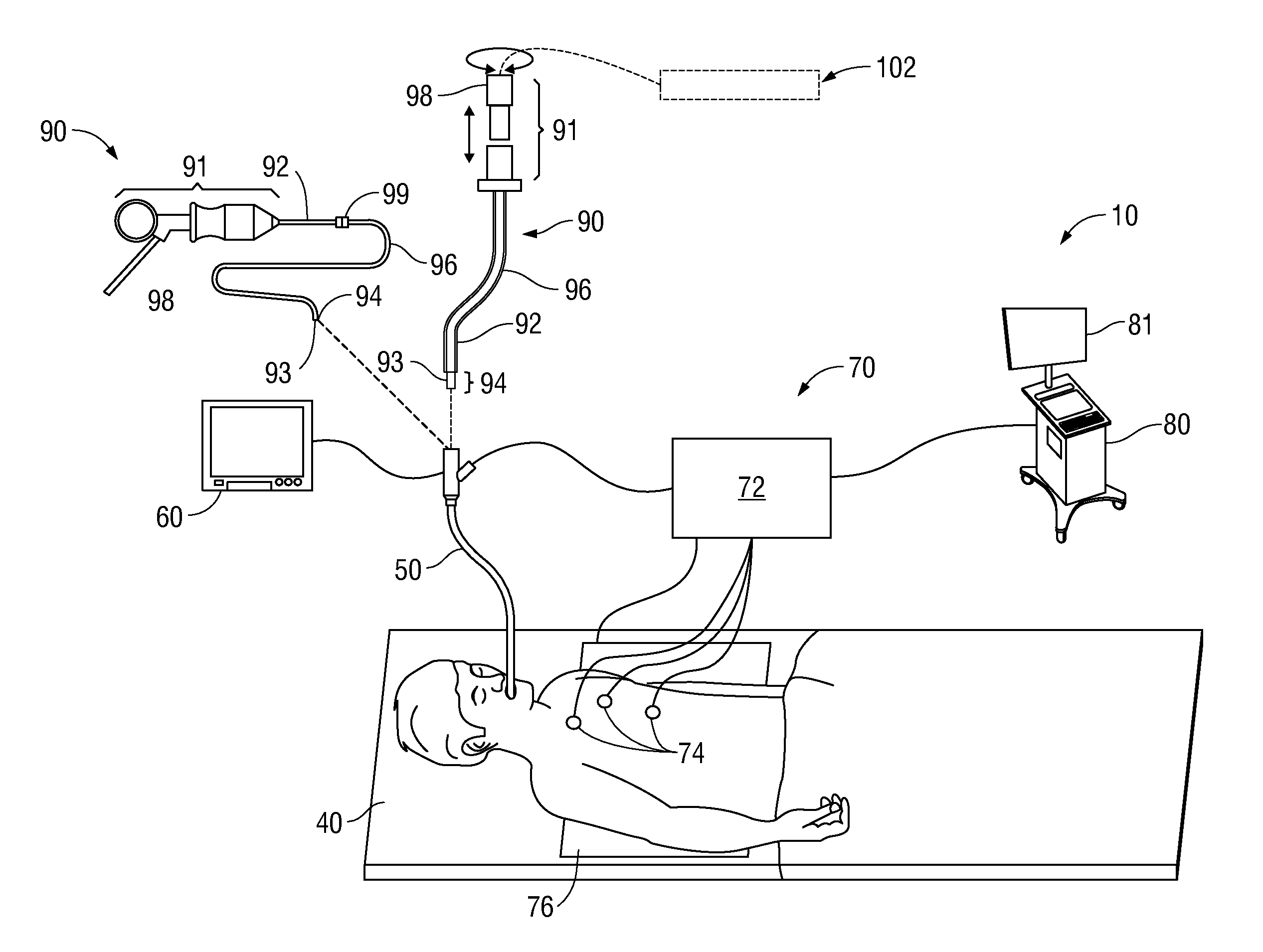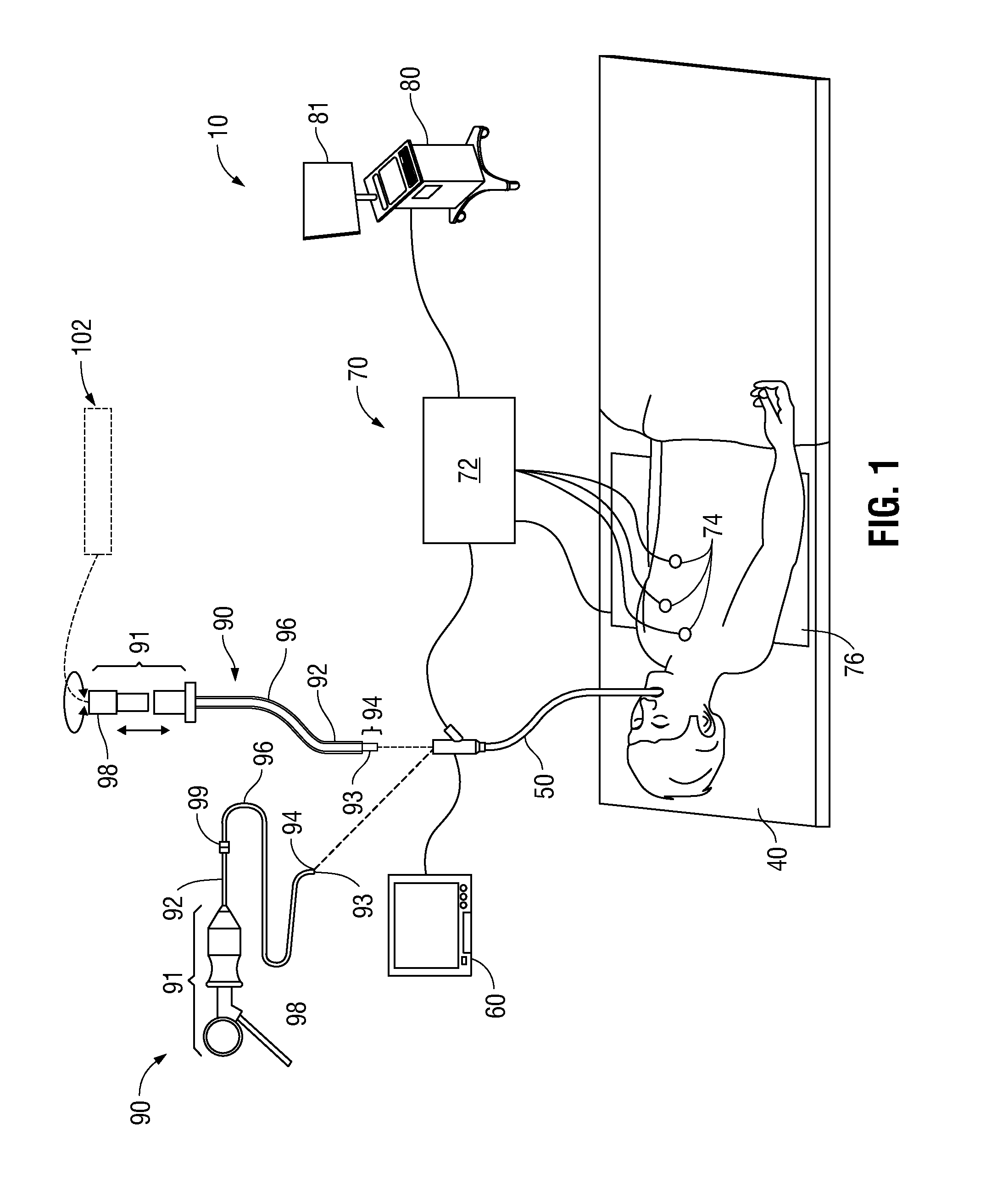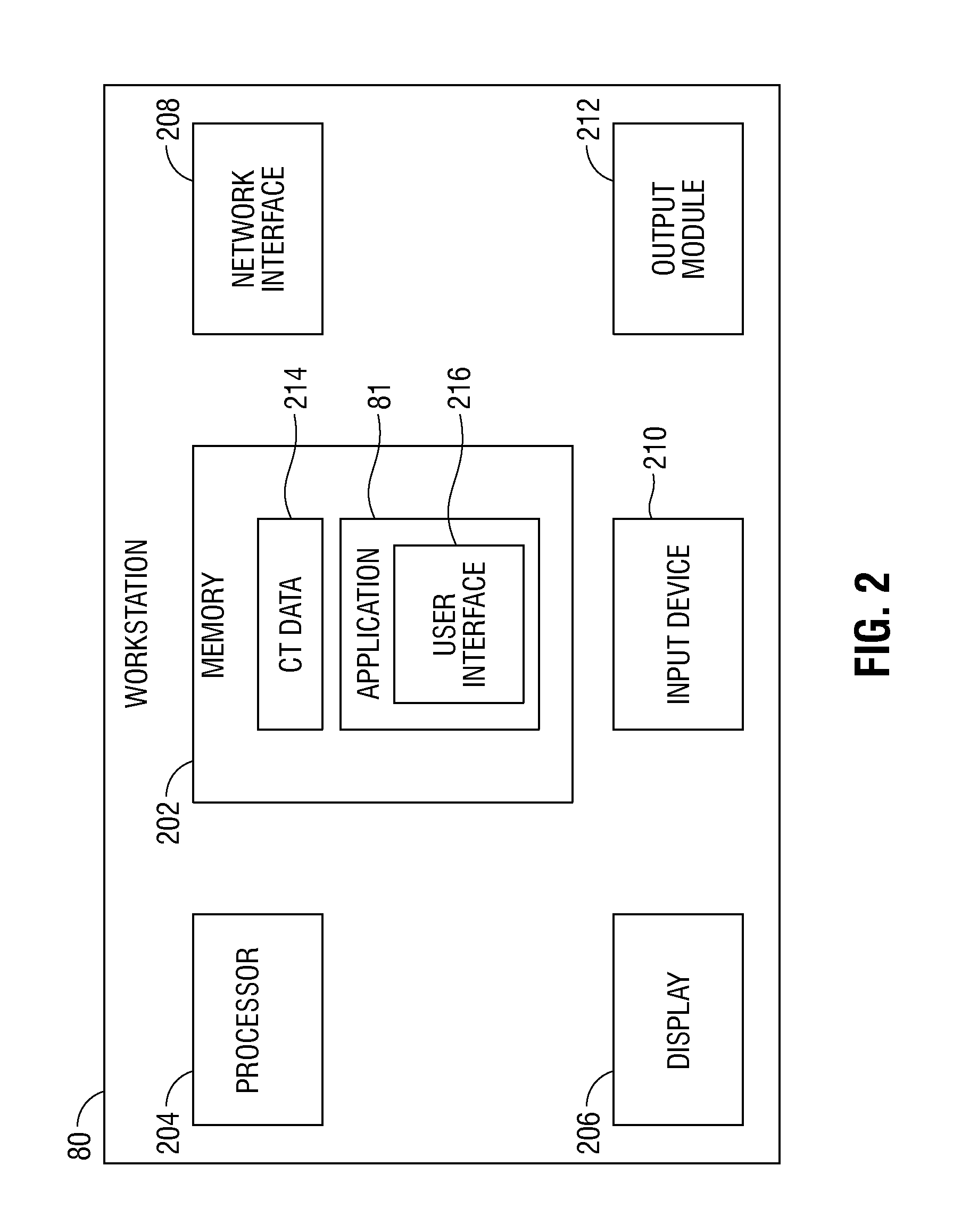Fluoroscopic pose estimation
a fluoroscopic and pose technology, applied in the field of fluoroscopic pose estimation, can solve the problems of difficult identification with conventional fluoroscopy, ct data is not used in real time, and the fluoroscopic image renders flat 2d images on which it can be somewhat difficult to assess the three-dimensional position of the medical instrumen
- Summary
- Abstract
- Description
- Claims
- Application Information
AI Technical Summary
Benefits of technology
Problems solved by technology
Method used
Image
Examples
Embodiment Construction
[0031]The present disclosure is related to devices, systems, and methods for finding the fluoroscopic projections relative to 3D CT image data in order to register or overlay portions of the 3D CT image onto a fluoroscopic 2D image. The 2D and 3D data are defined in different referentials and, as such, the rotation angles and translation coordinates between them needs to be computed precisely, in order to exploit both the 3D information from CT images and the precision and real-time character of the 2D fluoroscopic data. The calculations may be based on the coordinates of fiducial markers, measured both in 3D CT and 2D fluoroscopic data. Overlaying portions of the CT image onto a fluoroscopic 2D image may be useful to a user performing an ELECTROMAGNETIC NAVIGATION BRONCHOSCOPY® (ENB) procedure using an electromagnetic navigation (EMN) system.
[0032]An ENB procedure generally involves at least two phases: (1) planning a pathway to a target located within, or adjacent to, the patient'...
PUM
 Login to View More
Login to View More Abstract
Description
Claims
Application Information
 Login to View More
Login to View More - R&D
- Intellectual Property
- Life Sciences
- Materials
- Tech Scout
- Unparalleled Data Quality
- Higher Quality Content
- 60% Fewer Hallucinations
Browse by: Latest US Patents, China's latest patents, Technical Efficacy Thesaurus, Application Domain, Technology Topic, Popular Technical Reports.
© 2025 PatSnap. All rights reserved.Legal|Privacy policy|Modern Slavery Act Transparency Statement|Sitemap|About US| Contact US: help@patsnap.com



